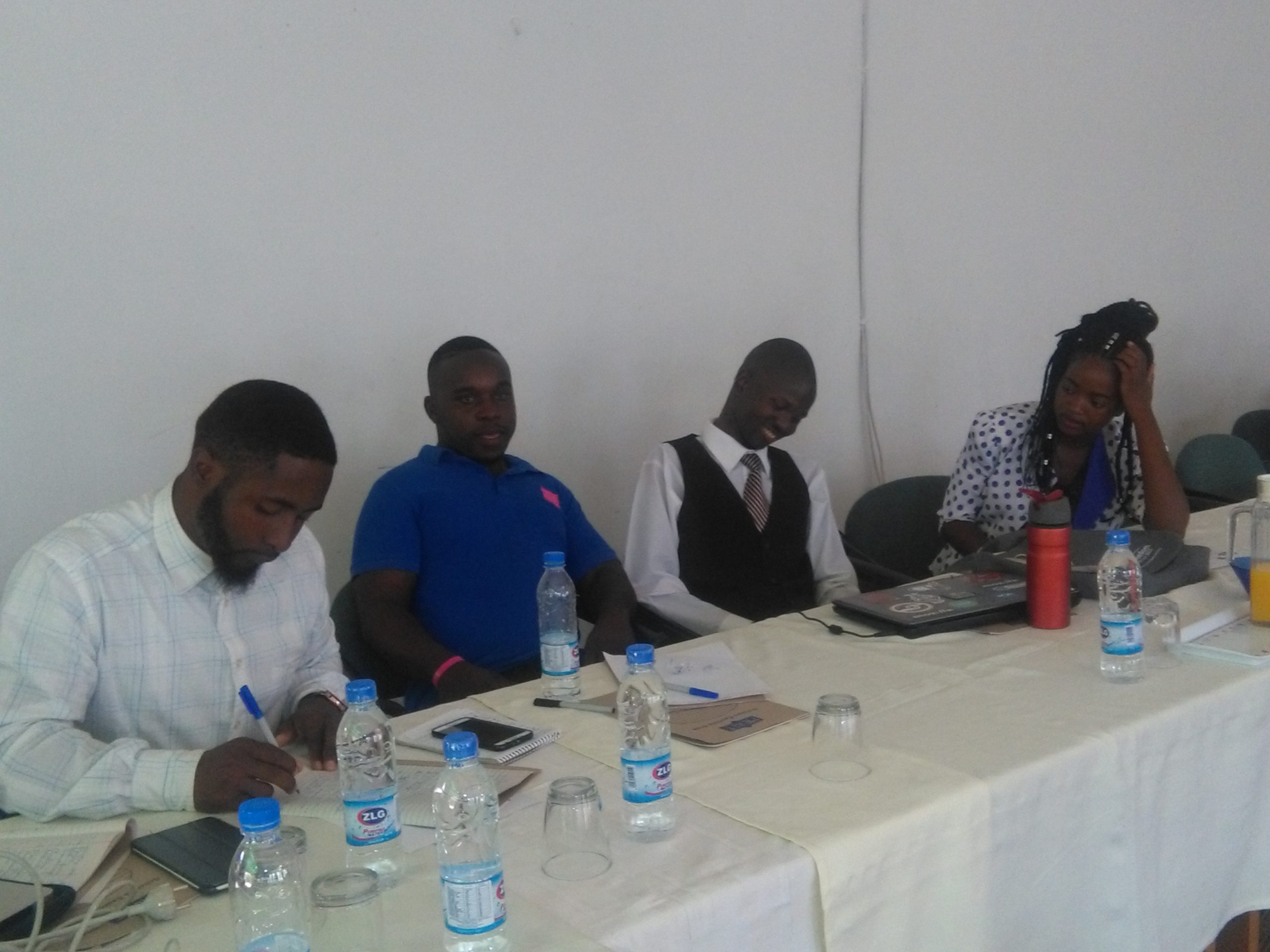By Byron Mutingwende
Adrian Munyoro is a youth defying limitations imposed on persons with disabilities (PWDs) and is on a mission to prove to the world that being differently abled is not a sign of inability.
Munyoro was born on 10 January 1992 and suffered an injury during birth, which resulted in him having a disability called cerebral pulse.
“I talk slowly, have a speech problem and can’t walk straight up due to limited balance. I did my pre-school at St. Giles Special School in Harare. I started walking when I was eight years old. I did my primary education at the same school. In 2008, I was denied a place at Prince Edward School because I stayed far away which would make it difficult to attend lessons on time due to my disability.
“Fortunately, I later enrolled at Seke 1 High School where I was put in a special class which was meant for students with learning difficulties. I complained to my class teacher and asked to be transferred to the mainstream class since I was able to comprehend Form 1 stuff. The other students in the mainstream class adjusted to my condition and accepted me.”
Munyoro said the situation was different outside classes. Other students used to mock at the way he walks and laugh at him, giving him names and others bullied him.
“I felt like I was not a human being. Break time was very difficult for me. I used to spend it hiding in the classroom. One day, my teacher for no apparent reason beat me up. I reported the abuse and harassment to the headmaster but he didn’t act against the teacher. I dropped out of school when I could no longer contain the discrimination,” Munyoro said, talking casually.
He watched helplessly as time went by whilst he was just seated at home. He used to cry and just sleep all day long. His situation was worsened by intermittent power cuts and the entertainment from the radio and television, which had become his companion, would be gone. He would dream himself as an able-bodied person, only to wake up with the disability.
In 2010, his friend introduced him to Young Voices, an organisation where youths with disabilities meet on Saturdays. When he joined, one Mr. Zindoga taught him about the rights of persons with disabilities. He started writing poems and enrolled to study short computer courses. He joined the network of young people who taught him about dealing with stigma and discrimination against people living with HIV and AIDS and PWDs.
“In 2011, I went back to school and enrolled at B and P Study Centre. The headmaster introduced me to class and pupils there accepted my condition. I enjoyed learning. In July 2012, I was chosen to attend the 19th Disability and HIV and AIDS workshop in Washington DC in America. I wrote Ordinary Level examinations in 2014 and passed with flying colours. I then proceeded to Advanced Level at Young Africa Skills Academy. I applied and was accepted to study information technology at Zhejiang A and F University in China, paid tuition fees and purchased the air ticket. A week before my departure, the university called my mother and advised her that I was no longer eligible because of my disability. I was shattered but never lost hope to make a positive impact in life.”
Currently, Munyoro is a volunteer at Youth Advocates Zimbabwe. His duties as a peer educator include sharing information with PWDs on issues to do with sexual reproductive health. He participates in stakeholders meetings, community outreach programmes and support groups.
He is also a volunteer at Leonard Cheshire Disability Zimbabwe where he is the chairman of the Young Voices department of that organisation in Chitungwiza.
Turning to the portrayal of PWDs in media, Munyoro said journalists needed to do more to improve the coverage of this key population.
“The media tends to cover PWDs when they are being given assistance. There is a tendency to put PWDs into a charity mode. Disability rights activists are often regarded as politicking and not given adequate media coverage,” Munyoro said.
Tinashe Mutero, the LCDZ Harare Chairperson of Young Voices, echoed his sentiments. Mutero said the fact that PWDs constitute 7% of Zimbabwe’s total population was not reflected in the number in decision–making positions. He encouraged journalists to lobby for proportional representation of PWDs in all facets of life.
There are many reasons why there are gaps in the portrayal of PWDs in the media. At a workshop organised by Juliet Muzondo, the LCDZ programme manager to discuss that trend recently, it appeared that the political economy of the media was to a large extent to blame. Media houses concentrate on making profits and information is now commercialised.
There is need to capacitate journalists to use disability friendly language and for them to know ways of communicating with differently abled members of society.






